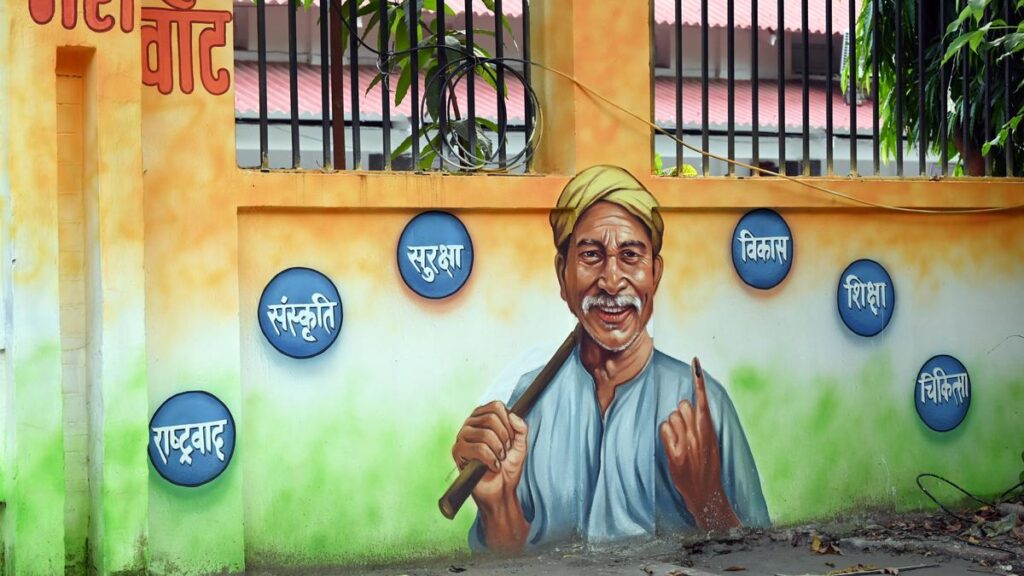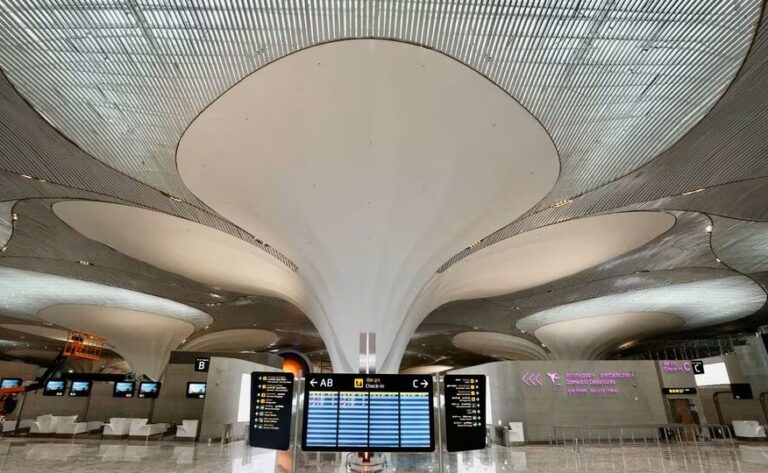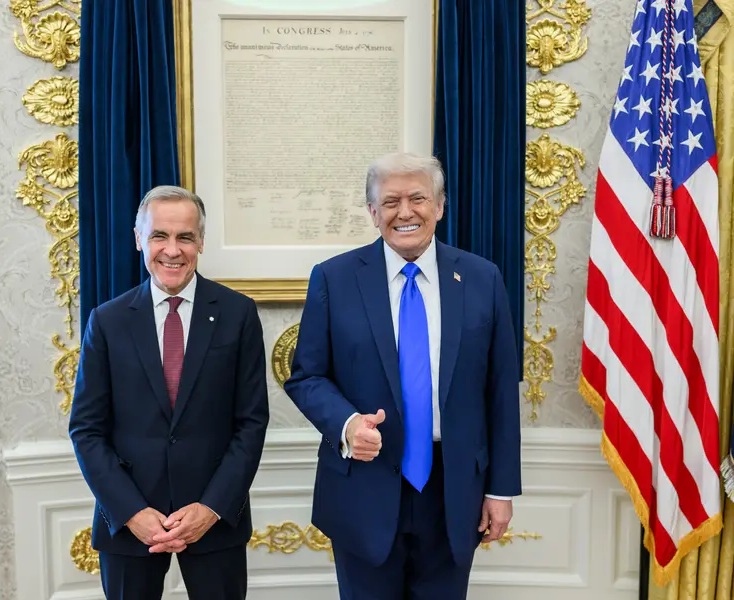
In NDA, the bigger allies JD(U) and BJP appeared largely in sync, but smaller allies appeared to be gearing up to jostle for more seats.
Both major alliances in Bihar scrambled on Tuesday to put finishing touches on their seat-sharing arrangements for next month’s elections to the 243-seat state assembly with a series of meetings even as last-minute demands by smaller allies in both camps threatened to scupper negotiations and prolong talks.
A day after the Election Commission of India announced the schedule for the two-phase polls on November 6 and 11, the focus turned to hectic parleys in both the National Democratic Alliance (NDA) and the Indian National Developmental Inclusive Alliance (INDIA) camps. The last date of nomination for the first phase of 121 seats is just 10 days away.
In NDA, the bigger allies Janata Dal (United) and Bharatiya Janata Party appeared largely in sync – HT has reported previously that both parties are likely to contest 102 and 101 seats, respectively – but smaller allies appeared to be gearing up to jostle for more seats. Union minister Chirag Paswan’s Lok Janshakti Party (Ram Vilas), which had earlier settled for around 20-22 seats, was asking for at least 15 more, said a senior LJP (RV) leader, who asked not to be named. Paswan also has some channels of communication open with strategist-turned-politician Prashant Kishor’s Jan Suraaj party , the leader added. “The door is always open. Options are always available in politics,” said the leader.
BJP Bihar election in-charge Dharmendra Pradhan, state in-charge Vinod Tawde and state minister Mangal Pandey met Paswan at the latter’s residence in Delhi. The details of the meeting were not immediately available.
Similarly, Jitan Ram Manjhi’s Hindustani Awam Morcha (Secular) and Upendra Kushwaha’s Rashtriya Lok Samata Party, too, raised demands to contest 15 and 10 seats, respectively.
“The Election Committee met at the BJP office. All 18 members, including the election in-charge, and Union minister Dharmendra Pradhan, held a three-hour review meeting. Today, we had a discussion on the sitting seats. We were able to discuss about 60 of them. The remaining sitting seats and the lost seats on which the BJP contested will be discussed again”, said Bihar BJP chief Dilip Jaiswal.
In the 2020 elections, Paswan walked out of NDA and contested separately, winning just one seat but damaging the JD(U) in dozens of constituencies and contributing to chief minister Nitish Kumar’s party posting its lowest tally in two decades, 43.
Meanwhile, Kishor, has said his party will fight the contest on its own. “I will not ally with any party. Whatever seats Chirag gets, his nominees will have to be in direct fight with us at those seats,” he said in an interview with a TV channel on Tuesday.
In the Grand Alliance, the Rashtriya Janata Dal led the seat-sharing talks and is likely to contest 135-140 seats. The party has offered the Congress 50-52 seats, lower than the national party’s demand for 70 seats. “The number of seats being offered is below expectations but the goal (of winning) is more important,” said senior Congress leader Kishore Kumar Jha. “We are having one-on-one talks with leaders and will put everything before the CWC,” said state Congress president Rajesh Ram.
In 2020, the Congress fought 70 seats but won only 19 seats, and its poor performance was seen as one of the main reasons why the Opposition alliance fell agonisingly short of the majority mark, winning 110 to the NDA’s 125.
The party’s central election committee (CEC) is set to meet on Wednesday to decide on the candidates for the upcoming polls.
RJD leader Tejashwi Yadav also met Communist Party of India leader D Raja. According to reports, the two spoke on seat-sharing and other political matters. The Left parties are likely to get 15-18 seats.
The other big constituent of the Grand Alliance, the Communist Party of India (Marxist-Leninist) also appeared unhappy with the 20-25seats being offered to it. Five years ago, the CPI (ML) won 12 of the 19 seats it contested, and is demanding 40seats this time.
“We are also hearing about the seat-sharing formula through media reports. Let us wait for the final verdict. We are confident of getting at least 30, if not 40, seats,” said Kumar Parvez, secretary of CPI-ML.
A question mark also hung over Mukesh Sahni’s Vikassheel Insaan Party, which is a part of the INDIA group and was offered 15-18 seats. Sahni, on Tuesday, also sought to scotch speculation about switching sides. “Everything on seat-sharing has been finalised internally. Perhaps, tomorrow evening (Wednesday) we will hold a press conference and announce the decision,” he told news agency ANI.
Targeting the Bharatiya Janata Party (BJP), the VIP chief said that their resolve is to defeat the BJP. “When the BJP bought our MLAs and ousted us from the government three and a half years ago, our resolve was to defeat the BJP and oust them from the government. Therefore, we have been preparing for the last three and a half years,” he said, referring to three VIP MLAs who joined the BJP.
Kishor to contest
Kishor, whose outfit might emerge as kingmaker in a close contest, said he will release the list of candidates on Thursday. “The party will declare its list of candidates for the coming assembly polls on October 9 and it will be full of surprises. My name will also be there in the list,” he said.
Roughly 74.3 million people across 243 constituencies in Bihar will vote in assembly polls across two phases on November 6 and 11. The votes will be counted on November 14.
The elections will be a referendum not just on chief minister Nitish Kumar and Opposition leader Tejashwi Yadav, but also on the legacy of the Mandal (social justice) politics that the two parties represent in one of the movement’s original playgrounds.
The first phase on November 6 will see 121 constituencies go to the polls, followed by 122 seats five days later. The electorate comprises 39.2 million men and 35 million women, who will cast their franchise across 90,712 polling stations, where 100% webcasting will be done, ECI announced. In all, 850,000 polling officials will be deployed.
In the 2020 assembly elections, the NDA secured 125 seats while the Opposition’s Grand Alliance got 110. But the vote share difference between the two coalitions was just 0.03% even as the BJP emerged as the bigger partner than the JD(U) that was damaged by Chirag Paswan’s Lok Janshakti Party. The NDA fared much better in the general elections last year, winning 30 of the 40 seats on offer.




